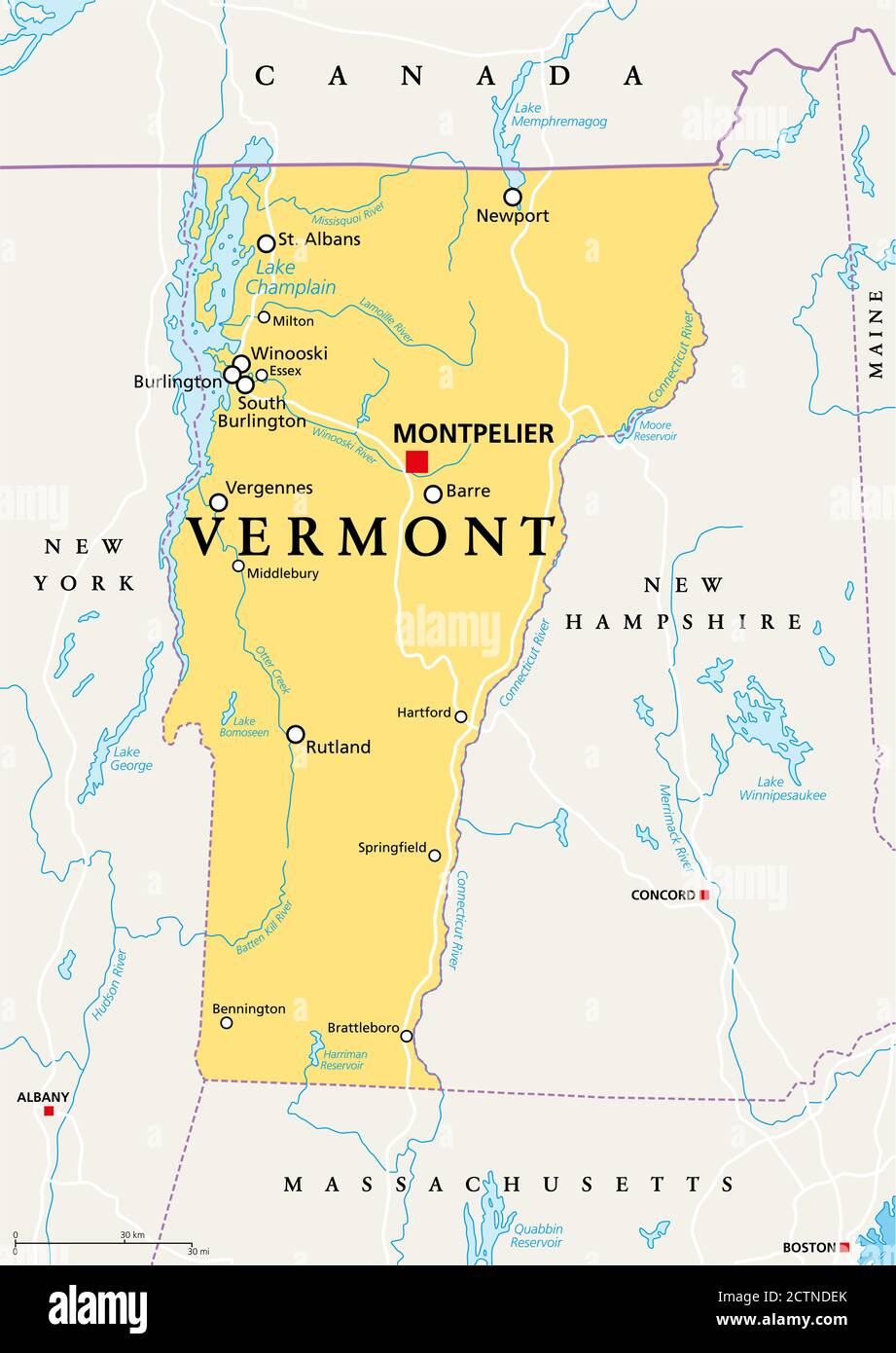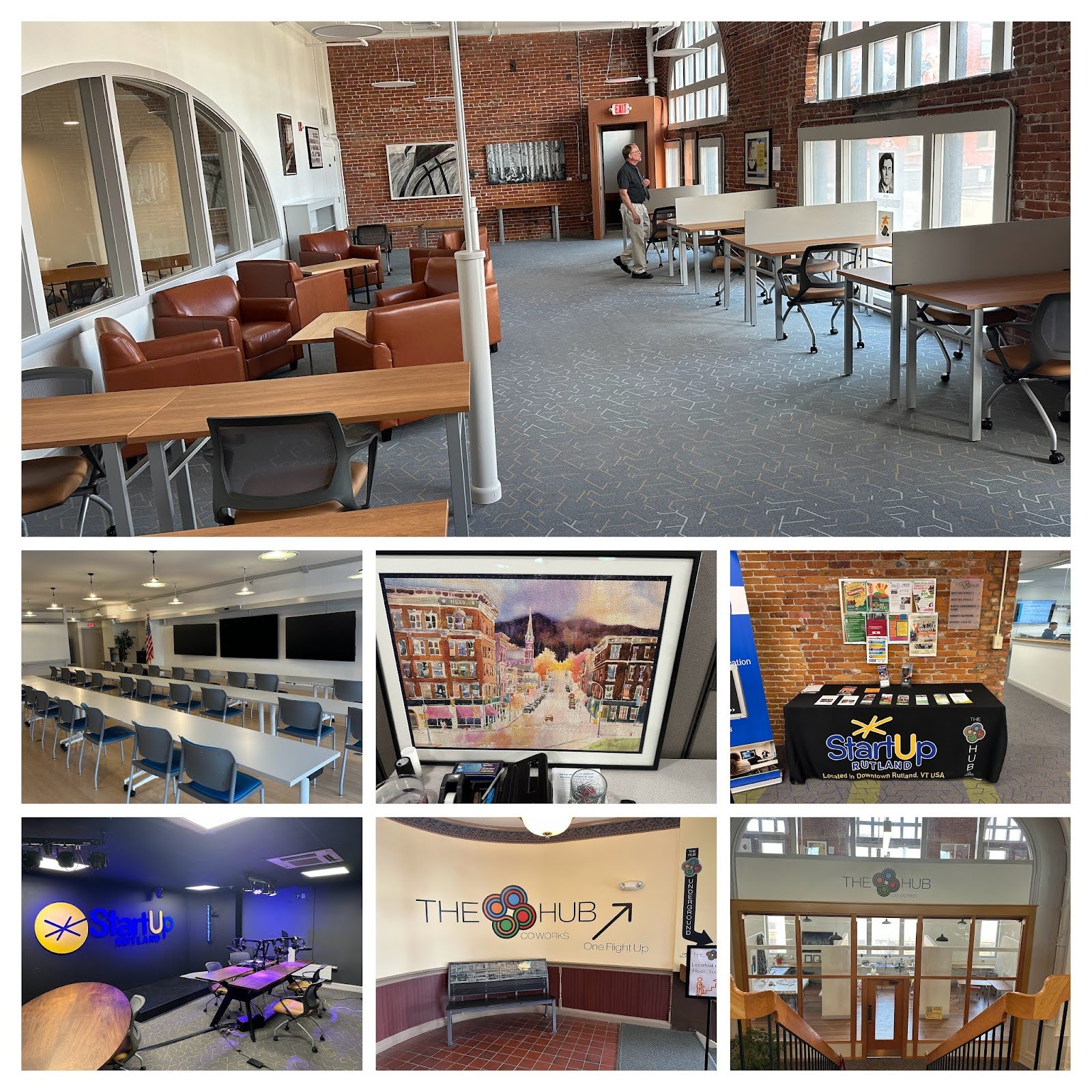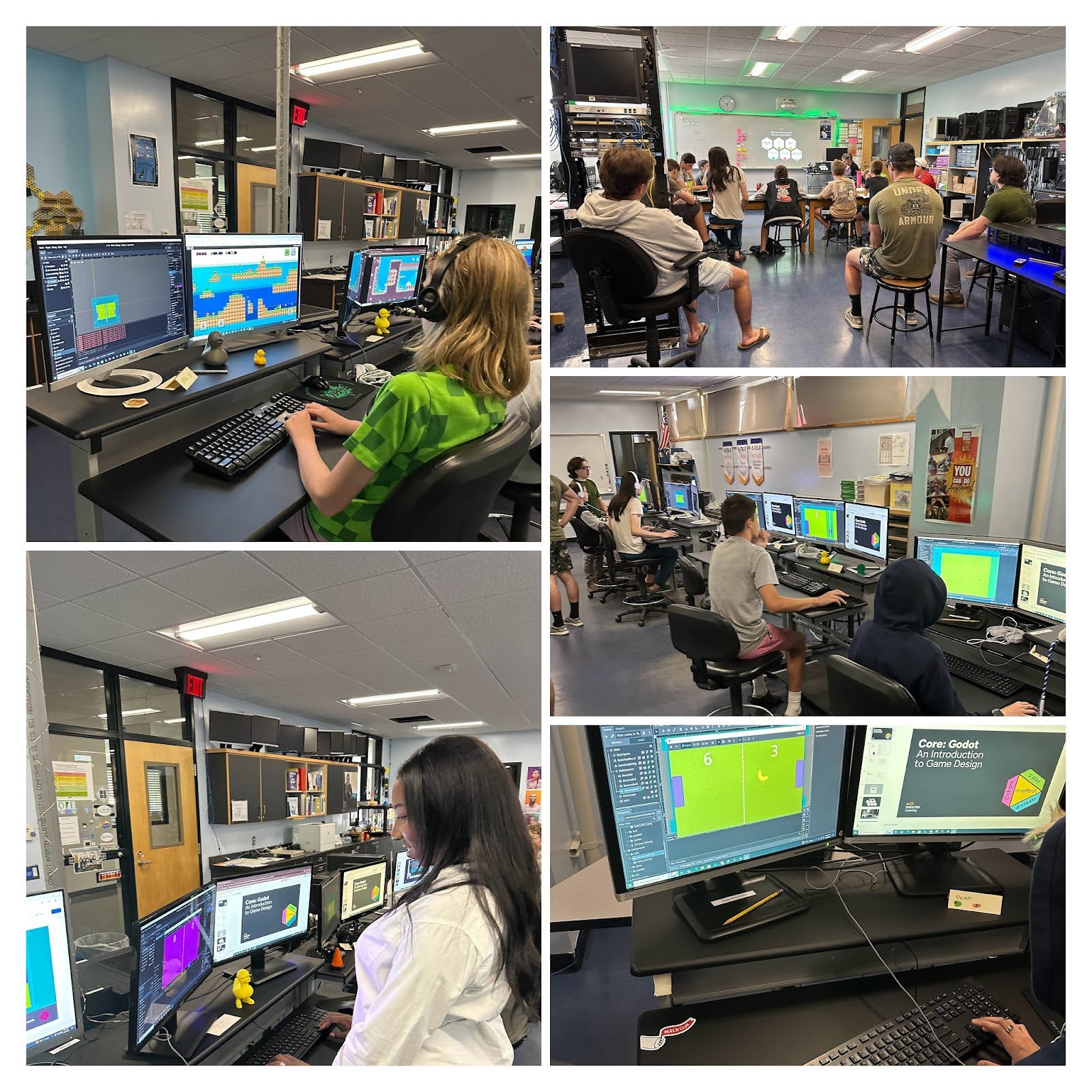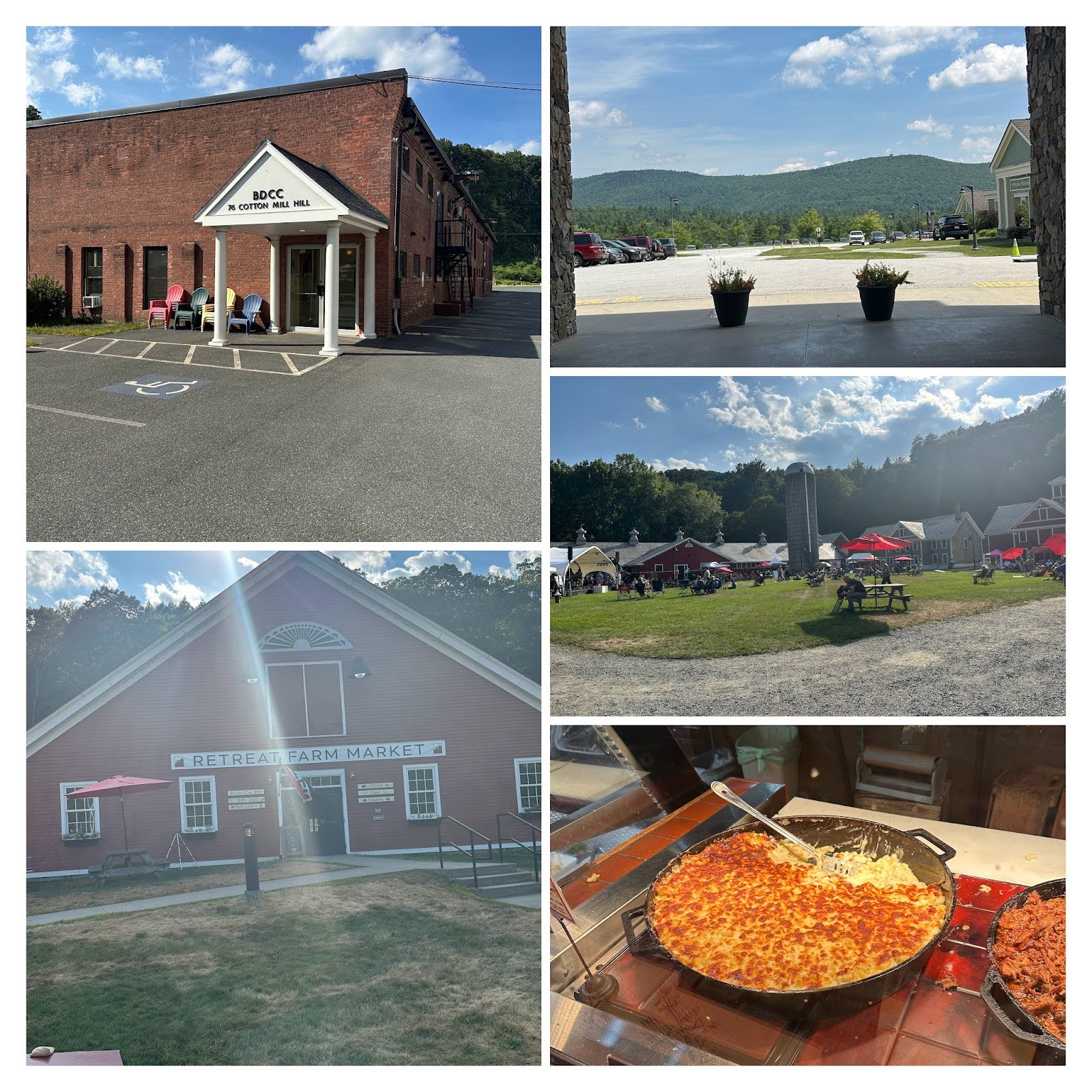Exploring Innovation and Opportunity: Reflections from the Vermont Rural Innovation Network Roadshow
Recently, members of CORI’s Tech Talent Development team, Shaniqua Corley-Moore and Cameryn Mitchell, embarked on a roadshow across Vermont to visit three Rural Innovation Network (RIN) communities: Rutland, Springfield, and Windham County.
Recently, members of CORI’s Tech Talent Development team, Shaniqua Corley-Moore and Cameryn Mitchell, embarked on a roadshow across Vermont to visit three Rural Innovation Network (RIN) communities: Rutland, Springfield, and Windham County. The goal was to deepen relationships, gather insights from local partners, and observe programs in action. Each visit offered a unique perspective on rural innovation, community resilience, and the promise of tech-driven economic opportunity.

Rutland: Innovation Meets Reinvention
The first stop was Rutland, where the team met with Lyle Jepson, Executive Director of the Chamber & Economic Development of the Rutland Region (CEDRR). Lyle led a tour of The Hub CoWorks, a 22,000-square-foot facility built with the ambition of becoming a bustling coworking and entrepreneurial space. While the original vision centered on open co-working, the local market taught a different lesson – private offices are in higher demand than collaborative/hot desks. That pivot reflects a broader trend: rural communities are finding their own versions of success, often diverging from urban models.
Despite challenges, The Hub has seen over 4,800 visitors in the last year alone for meetings, classes, and community events. Notably, CEDRR has hosted entrepreneurial training programs like G Beta and G Alpha, in partnership with nationally recognized startup accelerator gener8tor. These programs have served a range of entrepreneurs from medtech innovators to eco-friendly infrastructure startups to local creative ventures. Community-based pitch nights and mentorship opportunities have added visibility and momentum to local entrepreneurship.
The CEDRR team is also laying groundwork for apprenticeships and hands-on training through a potential new program that will be hosted at The Hub. They’ve already proven their ability to galvanize community energy through events like the Whoopie Pie Festival and the Real Rutland Feud, initiatives that blend local culture with economic development.

Springfield: Game Design and Youth Innovation in Action
In Springfield, the first stop was the River Valley Technical Center (RVTC), where BRIC (Black River Innovation Campus) hosted its summer camp while undergoing major renovations. The team was welcomed by Ben, STEAM & Design Coordinator at BRIC, and Kristen, RVTC’s IT instructor.
The summer camp, Let’s Make a Video Game!, served rising 6th–12th graders as a hands-on introduction to game development using the Endless Studios curriculum and Godot engine. Campers engaged in project-based learning: modding Pong, designing 2D platformers, and experimenting with tile maps. One of the most memorable activities was the “Gallery Walk,” where students showcased their customized games. Some replaced paddles with bananas and Happy Meals; others created animated characters, full environments, or strong narrative themes; all while learning to navigate a professional-grade game engine using GD Script.
Beyond observing the technical instruction, the CORI team conducted a program assessment and spoke with students about their experiences. Their creativity, curiosity, and engagement reaffirmed the importance of early exposure to tech pathways, especially when rooted in fun, tangible outputs like video games.
Springfield’s strategy of starting with middle school learners and building a feeder pipeline into high school programs shows promise. BRIC is creating a community-wide ecosystem for STEAM education that links exposure to skill-building and eventually career pathways.

Windham County: Community Conversations at Retreat Farm
The final stop was Windham County – meeting with Neil Goldberg from the Brattleboro Development Credit Corporation (BDCC) and joining the local community at Retreat Farm’s Food Truck Roundup, a vibrant weekly gathering that brings together families, live music, and local vendors in Farmhouse Square.
While enjoying food from local trucks and listening to the Kendall Street Company perform live, the CORI team spoke with residents about the local tech scene, workforce needs, and perceptions of emerging career pathways – casual conversations that often reveal the most authentic insights. Residents expressed both excitement and skepticism about tech sector growth, highlighting the need for ongoing outreach and education about how tech training and jobs can be relevant and accessible in rural life.
Neil also shared BDCC’s involvement in a National Science Foundation STEM grant initiative, a collaborative effort between three local colleges to enhance research capacity and create tech-aligned curricula in K–12 and higher education. BDCC plays a key role as a convener, connecting academic institutions with business partners to ensure that local talent development aligns with workforce needs. This effort mirrors CORI’s Tech Talent Development model and offers an exciting opportunity for collaboration and knowledge sharing.

The Team’s Takeaways
The Vermont roadshow reinforced that every rural community has its own story, challenges, and strengths. From Rutland’s evolution into an entrepreneurship hub, to Springfield’s immersive youth game design camp, to Windham County’s cross-sector STEM collaboration, the throughline was clear: these communities are embracing innovation on their own terms. The CORI team left Vermont inspired, energized, and more convinced than ever that the future of tech belongs in rural America, too.
